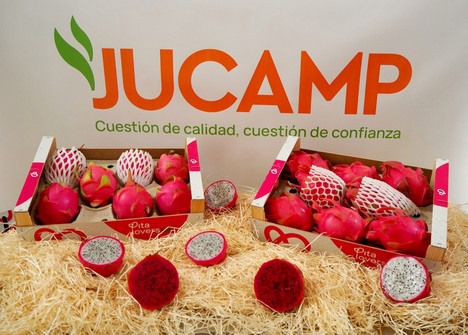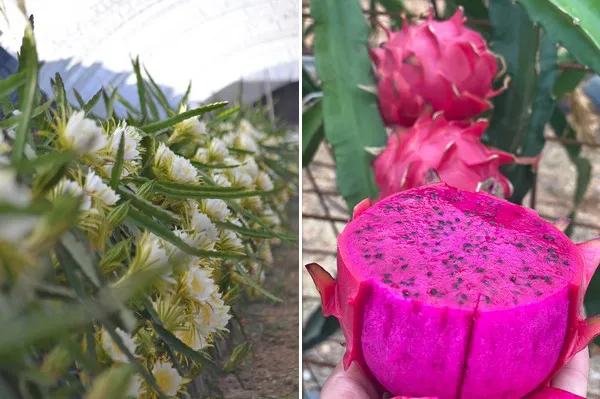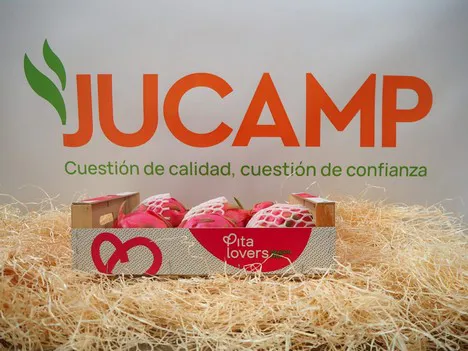The pitahaya is already one of Huelva's many crops. The campaign of this exotic fruit is starting this week with the first harvests, and those lots will find their way into the European markets as a local product, competing with other origins from the southern hemisphere.

"We are about to start the organic red pitahaya campaign, which will last until the end of November," says Juan Gomez, president of Jucamp, the largest producer of this fruit in Spain, supplying about 350,000 kilos per year.
"The Spanish production is currently reaching an emptier European market, as the supply from large producing countries in Asia and Latin America has been diminishing somewhat. We stand out by supplying a product that is locally-produced, organic and with a surprising flavor," he says.
According to the producer and exporter, the company employs a team of specialists who carry out the maintenance, pollination and harvesting tasks by hand.

Jucamp started producing pitahaya in greenhouses 5 years ago in order to diversify its fruit production, which already included citrus and berries. "We started with one hectare and we saw that the crop adapted well to the climatic conditions, allowing a good management. Now we have a fairly significant acreage and we plan to expand it with several more hectares in the coming years, so our commitment to this crop is strong. We are aware that we need significant quantities in order to be able to work with supermarket chains."
The company has its own R&D&I department to develop its own varieties. This is something that they were already doing with blueberries and blackberries, and which will be done also with pitahaya.
"We are conducting trials with almost 300 varieties of pitahaya, carrying out crosses to obtain fruits that have more flavor, are more productive and have better post-harvest characteristics. We are about to patent a variety that will also allow us to start the harvest one month earlier and delay the end of the season by one month," says Juan Gómez.

The fruit's consumption in Europe is still low, but according to Jucamp's president, it is growing slowly, but steadily every year. "The market demands increasingly more pitahaya and we hope it will continue to grow. Years ago, when we started planting blueberries, they were a fairly unknown crop and no one imagined that consumption would grow so much. It is a costly investment and at the moment, with slow sales, not everyone dares venturing into its cultivation in Spain."
"For the time being, we are working with wholesalers and with some supermarket chains in Spain, as well as with wholesale markets in other countries, such as Belgium or the United Kingdom. We sell our organic pitahayas in 4 kg formats, packed according to size, under our brand Pitalovers," said Juan Gómez.
For more information:
Juan Gómez
Jucamp
M: +34 685901989
comercial@jucamp.es
direccion@jucamp.es
www.jucamp.es
